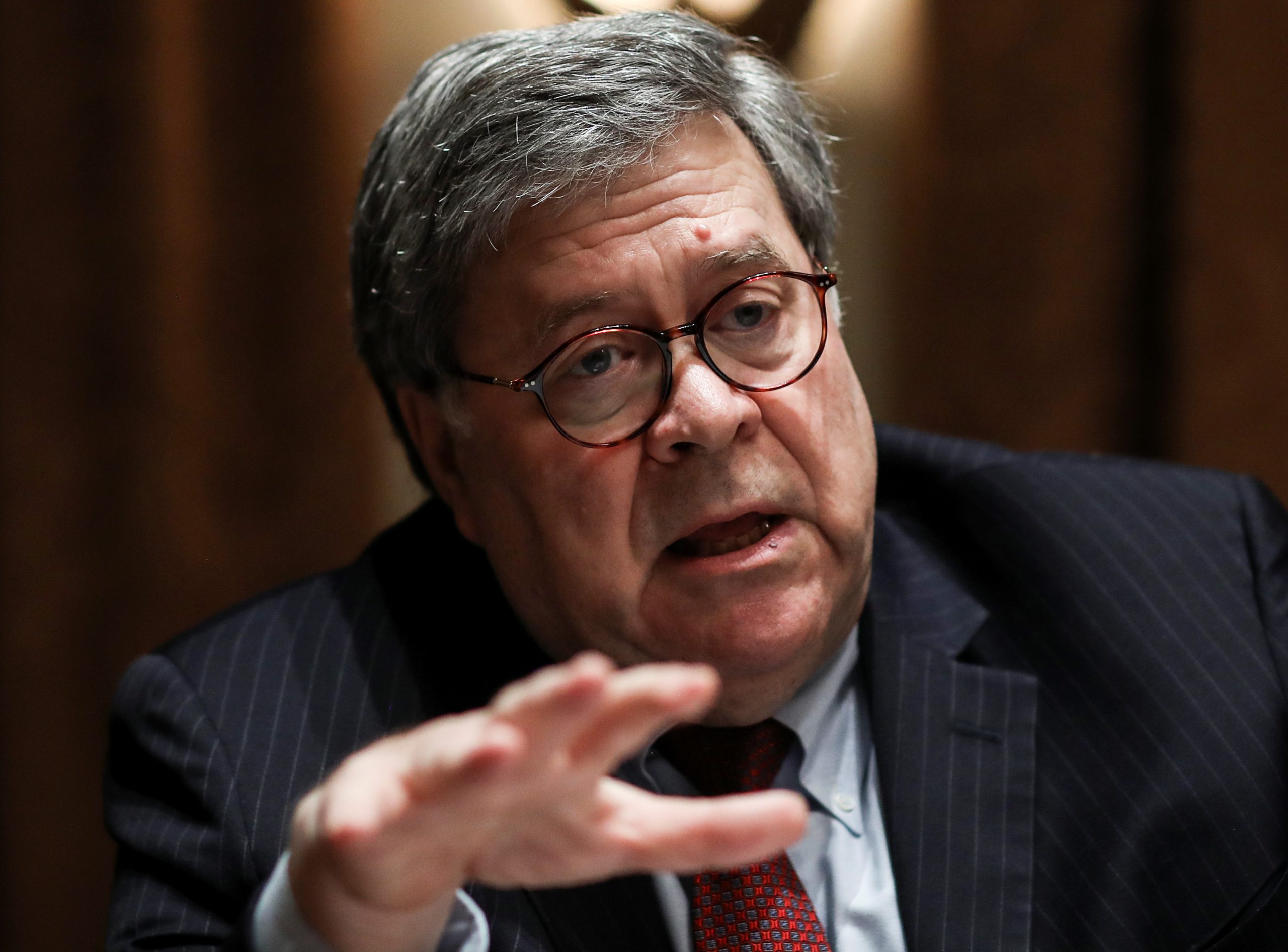U.S. Attorney General William Barr directed federal prosecutors to “pursue substantial allegations” of voting and ballot counting irregularities before the certification of this year’s presidential election. The move resulted in the Department of Justice’s (DOJ) top election crimes official to step down from his post.
Richard Pilger, director of the elections crimes branch in the Justice Department’s Public Integrity Section — who oversaw voter fraud investigations — resigned shortly after Barr’s directive on Monday.
Pilger wrote in an email to his colleagues, “Having familiarized myself with the new policy and its ramifications, and in accord with the best tradition of the John C. Keeney Award for Exceptional Integrity and Professionalism (my most cherished Departmental recognition), I must regretfully resign from my role as Director of the Election Crimes Branch.”
He added, “I have enjoyed very much working with you for over a decade to aggressively and diligently enforce federal criminal election law, policy, and practice without partisan fear or favor. I thank you for your support in that effort.”
According to the Associated Press, Pilger plans to stay at the DOJ as an attorney in the criminal division.
Barr said in the memo that investigations “may be conducted if there are clear and apparently-credible allegations of irregularities that, if true, could potentially impact the outcome of a federal election in an individual State.”
Read part of his letter below:
“Given this and given that voting in our current elections has now concluded, I authorize you to pursue substantial allegations of voting and vote tabulation irregularities prior to the certification of elections in your jurisdictions in certain cases, as I have already done in specific instances. Such inquiries and reviews may be conducted if there are clear and apparently-credible allegations of irregularities that, if true, could potentially impact the outcome of a federal election in an individual State. Any investigation of claims of irregularities that, if true, would clearly not impact the outcome of a federal election in an individual State should normally be deferred until after the election certification process is completed.”
A DOJ official told NBC News that while Barr authorized these probes, it does not mean the U.S. attorney general is alleging any election irregularities. It directs local attorneys to pursue if there are any credible allegations and how that “could potentially impact the outcome of a federal election in an individual State.”
The official told the outlet, “While serious allegations should be handled with great care, specious, speculative, fanciful or far-fetched claims should not be a basis for initiating federal inquiries. Nothing here should be taken as an indication that the Department has concluded that voting irregularities have impacted the outcome of any election.”
This comes after President-elect Joe Biden garnered enough Electoral College votes on Saturday to win the presidential election, and President Donald Trump has refused to concede, claiming without evidence the election results were flawed.
Barr’s directive drew a response from Sen. Richard Blumenthal (D-Conn.), who tweeted, “Once again, Barr acts as the president’s puppet. Barr is throwing gasoline on the fire of false claims of fraud, fueling doubts [and] undermining faith in the integrity of our election process.”
Biden’s campaign also pushed back following Barr’s directive, as a senior adviser said in a statement, “Those are the very kind of claims that the president and his lawyers are making unsuccessfully every day, as their lawsuits are laughed out of one court after another.”
























